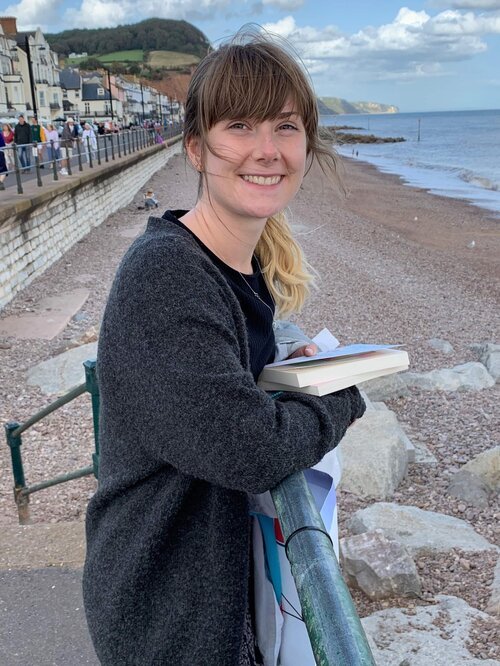Don’t Bash the Beeb — Just Take a Closer Look
This year, the BBC celebrates 100 years of broadcasting, and those who regularly watch its TV channels will notice the recent ‘This is our BBC’ idents, where clips of programmes have been edited to create a narrative around the importance of the BBC, featuring greats such as David Attenborough, Lenny Henry and Judi Dench. On the surface, it may look like a way to tug on the heartstrings and appeal to nostalgia, but there is a subtle change of tone with the line ‘But the BBC doesn’t have to be here, it only exists if we really believe it matters’. We’ll come back to that.
In order to be successful, the BBC has to rely on public support and good opinion. If you asked me what I wanted to do for a job when I was in sixth form, my answer would’ve been ‘to work for the BBC’. It didn’t matter what sector it was in — everything it represented (namely grown up city life in London) was the goal. When I was 17, I went to BBC Birmingham to interview for a production apprenticeship and I spent the day in awe. Although my career aspirations shifted over time, I later did work experience at BBC Wales in TV production. It was there that I realised there’s no magical, glamorous BBC world - it is just ordinary people turning up to work everyday and creating extraordinary things.
The BBC has been bound by Royal Charter since 1927 (which was established by the Conservatives in power at the time) and it sets out how it’s governed. The Charter is updated every 10 years, with the next change coming up in 2027. This is where the BBC differs from other media companies, as members of government sit on a board which considers issues or complaints, and the government can also provide ‘guidance’ to OFCOM on ‘content requirements’ for the BBC. This is primarily done through the Digital, Culture, Media and Sport Committee, which the culture secretary is responsible for. So although the BBC has to, quite rightly, adhere to partiality requirements, it’s still influenced by whoever’s in charge — but change this, and you have to change the whole structural and funding model of the Corporation. In the past 11 years where the BBC has to compete with larger companies such as Sky and Netflix, it has been at the whim of a Conservative government, with a somewhat strained relationship. Much like another national institution, the NHS, it has taken a battering.
The current culture secretary, Nadine Dorries, recently made headlines after freezing the cost of the licence fee. In an interview with The Times, she delivered one of the starkest warnings made by a culture secretary: ‘I’m afraid the BBC in its present format, in its present funding model will not exist in the future… You have to open your eyes and see what’s coming.’
Ironically, the more this topic gets discussed and splashed across newspaper headlines, the more this issue is whipped up into a frenzied topic. And who do you think owns the newspapers this is most scandalised in? (Spoiler alert: one was also the owner of Sky television up until 2018, and another is a member of the House of Lords.)
The BBC’s Royal Charter (and consequent funding model) is perhaps its Achilles heel, as the simultaneous best and worst thing about the BBC is that it is meant for everyone, so has to appeal to everyone. Whether that’s Drag Race on BBC Three, or proms coverage on BBC Radio 3, no other media company has to appeal to a mass audience in this way. I often find it difficult to explain this to my Nan, who complains that there’s ‘Nothing good on TV’ when they’re only looking at a small proportion of production, in the wider context of the BBC’s entire output — this covers 11 national TV channels, local news coverage, 10 national radio stations, 40 regional radio stations, the BBC website, podcasts, iPlayer and apps.
We’ve also become so used to algorithms, which gather data on what we do or do not like, essentially dictating what we consume, that we expect all content to be specifically tailored to us. Some BBC platforms such as iPlayer do this to some extent, but when we flick on the TV or the radio we don’t see that, and we may come across things that we might not be a fan of. Much like the opinions and viewpoints we consume on social media, we’re at risk of entering an echo chamber of content, and if you simply sat down and consumed different content, you might surprise yourself.
One of the main criticisms aimed at the BBC is that it’s biased in its reporting: those on the left argue that it’s too right wing, and those on the right argue that it’s too left wing. However, it is worth noting that it still produces intelligent, accountable journalism. Who could forget Emily Maitlis’ iconic and responsive interview of a sweating Prince Andrew? The Reality Check team, who investigate all sorts of claims in the news, formed after the growth of misinformation during the EU referendum campaign and Trump’s US presidency campaign, also do an incredible job.
There’s always been a sort of tension between Conservative governments and the BBC, akin to the expression ‘don’t bite the hand that feeds you’. But it has been especially heightened as we reach the streaming and subscription era — and there doesn’t appear to be an easy solution without causing other problems such as editorial partiality. So next time you complain about the BBC, maybe it’s time to take a look at the government handling it.
Written by Sophie Ellis
Sophie is a twenty-something editorial assistant near Bristol and Bath. You can usually find her book shopping or trying not to kill off her veg patch, but ideally, she's by the beach.









